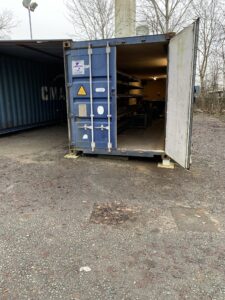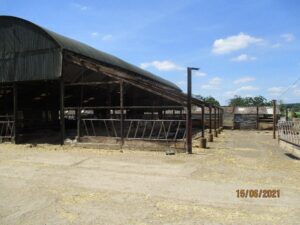Manchester engineering firm fined after apprentice loses fingers
A Manchester-based engineering company has been fined £500,000 after a young apprentice lost the use of two fingers when using a horizontal bandsaw.
The apprentice, who was just 18 at the time, suffered the serious injuries to his fingers in an incident at Proline Engineering Limited in Worsely, on 7 November 2022. While one finger was severed completely, the other was surgically re-attached. However, the now 20-year-old has been left with very little movement and nerve damage in that finger. He had only been on a placement with the firm in order to gain experience in fabrication and engineering and was just over a month into this placement when the incident occurred.

An investigation by the Health and Safety Executive (HSE) found that he was being taught how to weld as part of his apprenticeship placement. This process required multiple sections of steel to be available to practice welding on. After a brief period of verbal training he was permitted to cut lengths of steel into these sections using a horizontal bandsaw, which was located in a shipping container some distance away from the main workshop.
HSE inspector Tracy Fox said: “This young man was at the very start of his career.
“As a result of this companies failures, he sustained serious and irreversible injuries that have been truly life changing. Those injuries have impacted on many aspects of his life and resulted in him having to undergo numerous operations and procedures.
“Once a keen mountain biker and member of his local gym, his hand grip is such that he can no longer take part in those activities that he used to love.”

On the day the incident happened, he had been working unsupervised when he noticed the bandsaw was not completing a full cut due to a build-up of metal debris underneath the sawblade. As he attempted to clear away the debris, his fingers came in contact with the moving sawblade, instantly severing one finger and severely damaging another. He was taken to hospital where he remained for six days.
The investigation also found that Proline Engineering Limited had failed to carry out a suitable and sufficient risk assessment, resulting in a failure to provide suitable guarding arrangements on the bandsaw and had failed to put in place an adequate safe system of work. It also revealed inconsistencies and inadequacies in the provision of information, instruction, training and supervision for those required to use the bandsaw.

The company pleaded guilty to breaching Section 2(1) of the Health and Safety at Work etc Act 1974 at Manchester Magistrates’ Court. They were fined £500,000 and ordered to pay £5,317 costs at a hearing at on 6 November 2024.
HSE inspector Tracy Fox went on to say: “Had even the most basic safeguards been put in place this incident would have been avoided.
“The risks arising from operating machines such as bandsaws are well known. HSE has clear guidance on the provision and use of work equipment that can help in preventing incidents like this from happening.
“We would like highlight that all employers should make sure they properly assess their workplace for these risks and act to ensure that effective measures are in place to minimise the risks associated with operating machinery.
“It is crucial that as part of this assessment employers consider and manage any increased risks that may be associated with inexperienced employees.”
This prosecution was brought by HSE enforcement lawyer Gemma Zakrzewski and supported by HSE paralegal officer Sarah Thomas.
Notes to editors:
- The Health and Safety Executive (HSE) is Britain’s national regulator for workplace health and safety. We are dedicated to protecting people and places, and helping everyone lead safer and healthier lives.
- More information about the legislation referred to in this case is available.
- Further details on the latest HSE news releases is available.
- HSE does not pass sentences, set guidelines or collect any fines imposed. Relevant sentencing guidelines must be followed unless the court is satisfied that it would be contrary to the interests of justice to do so. The sentencing guidelines for health and safety offences in England and Wales can be found here and for those in Scotland here.
- Guidance on working safely with machinery is available.

